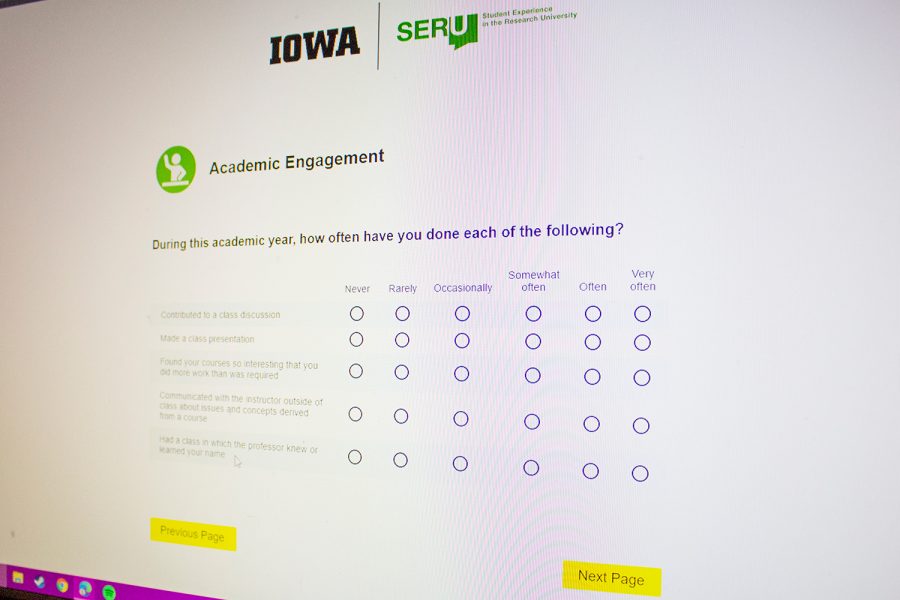UI students voice concerns over minority representation in 2021 Campus Climate Survey
University of Iowa undergraduate students show concern about responses of minority student populations in the 2021 Campus Climate Survey report.
Photo Illustration
April 10, 2022
After the release of the 2021 Campus Climate Survey report and the opening of the 2022 survey, undergraduate students reacted to the survey results and voiced their concerns to The Daily Iowan.
The University of Iowa Division of Diversity, Equity, and Inclusion conducts periodic campus climate surveys to gauge student perceptions of belonging on campus and equity in student achievement.
UI first-year student Dana Egan, who is Black, said that some of the wording used in the survey concerned her, including the grouping of multiple racial and ethnic groups into the underrepresented minority (URM) category.
“I don’t even know what that term really stands for, but I do know that it’s not separate, and I feel like if it was separate, they might get a ton of much different results than just having that clump,” Egan said.
The URM category encompasses students identifying as Black, Latinx, Native Hawaiian or Pacific Islander, and American Indian or Alaskan Native, according to the survey.
According to the survey, 75 percent of URM undergraduate students feel that their social identity is respected on campus.
Andre Perry, director of arts, engagement, and inclusion and senior advisor to the executive officer of the UI Division of Diversity, Equity, and Inclusion, said a factor in using the term URM is to ensure a large enough sample size to account for the different racial and ethnic groups on campus.
If there were fewer than 10 respondents in any of the categories, it would not be detailed in the survey report to maintain the confidentiality of the data, Perry said.
“That is probably the most important thing, is that we need to respect the confidentiality of this survey so that all of us, like faculty, staff, students, that we feel comfortable taking it,” Perry said. “We’ve got to feel that our information can meet people in an ethical way.”
UI fourth-year Olivia Manaligod said the experiences of the diverse racial and ethnic groups deserve deeper investigations and improvements to be made, instead of grouping them into a single category.
“I think, in general, to lump all minorities together is really disrespectful, just because like, Black students are going to face very different experiences than Latino students,” Manaligod said. “To not go in-depth with it or treat it as an actual issue is also frustrating.”
Hariram Saravanan, an Indian American student who is also a UI fourth-year, said the overall length of the survey and the variety of topics were fatiguing.
Data visualization by Kelsey Harrell/The Daily Iowan
“In my opinion, I think it was kind of flawed to have such a long survey encompassing several different ideas and thoughts into one thing,” Saravanan said. “Because I feel like – myself included – toward the end of the survey, I was just trying to get it over and done with.”
Manaligod said that it’s necessary to go beyond surveys in efforts to increase diversity, equity, and inclusion. She suggested that the university engages in more outreach to student organizations and the Multicultural and International Student Support and Engagement office.
“Across America, across the world, it’s very clear that minorities are not treated well,” Manaligod said. “You can just assume at any institution, especially predominantly white institutions, that that’s going to be the case and that you can always improve.”
Perry said recommendations based on the survey and from the DEI division are brought into strategic plan meetings to ensure that the feedback is incorporated into the 2022-2027 UI strategic plan.
“We want to see things changed, written down because the conversation is important, and we do need to build community and relationships and trust with each other,” Perry said. “But we know when a rule changes, a policy changes, that’s when the university changes.”



